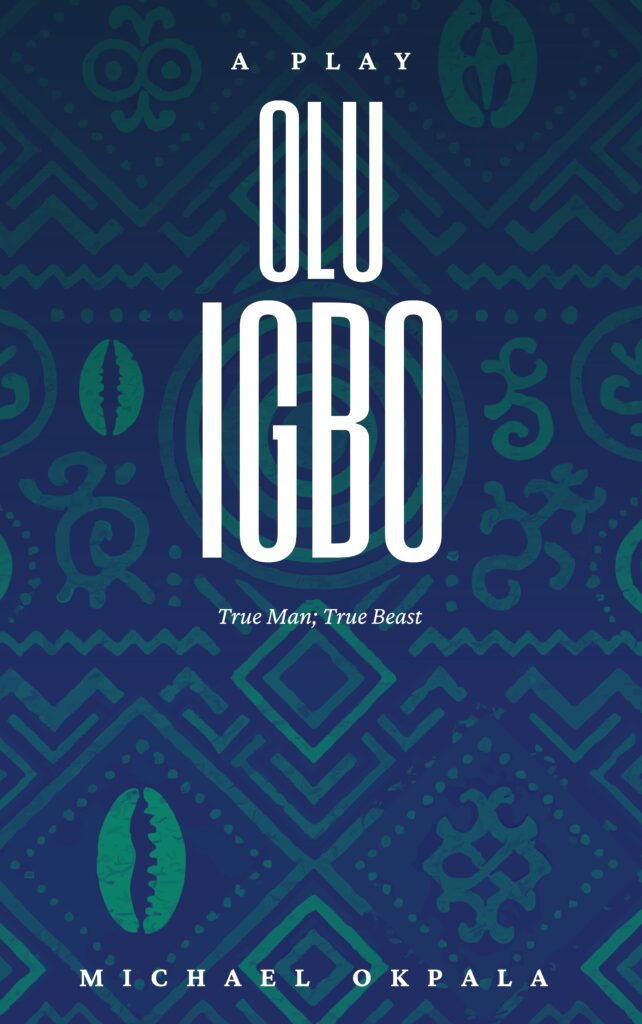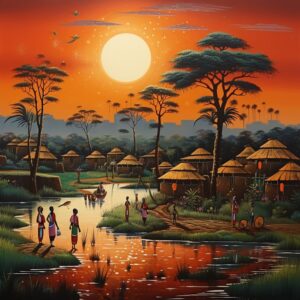I would be brutally honest—I am completely blown away by the concept that in the forest, here in my land, sits a king, one who is better hidden from amongst men, to rule the wild beasts that dwell within.
And no, it’s not the lion.
In many African traditions, the forest is a living, breathing realm of spirits, ancestors, and mysteries. Yet unlike the lion, often dubbed “king of the jungle,” few cultures speak of a mortal monarch who rules the woodlands. Instead, the title belongs to the spirit world.
Take the Bakongo concept of Mfinda, the spiritual forest: a liminal home where ancestors dwell, healers commune with nature, and the living intersect with spirits as a sacred bridge between worlds. It is not ruled by any single figure but respected collectively as the domain of bisimbi and ancestor‑spirits.
In Central Africa, the Eloko (or Biloko)—small, fierce boundary‑guarding forest beings—inhabit hollow trees and protect hidden treasures. Though not royal, they enforce the forest’s code through terror and trickery, their legends warning all who would trespass into the wild.
Similarly, West African myth speaks of Aziza, benevolent forest dwellers who guide hunters and herbalists—more mentors than monarchs.
And among the Yoruba, the orisha Àjìjà (Aja) governed the whirlwind and the plants, offering hidden knowledge to those who dared journey into the forest’s depths—another guide, but not a king.
Enter Olu Igbo: The Beast-King of the Forest

Olu Igbo personifies both human valor and wild, spiritual sovereignty: chosen through sacrifice to bridge human kingdoms and ancestral powers. He embodies a leadership seldom seen in African myth, yet plausible in this narrative world. I particularly fell in love with the depiction of Olu Igbo by Kola Ogunmola in his operatic libretto The PalmWine Drinkard, who sees the forest king as a demigod, one whom the spirits serve and who can grant a mere mortal access into the deep bellies of the evil forest for their different aims and purposes, only granting one access if he was indeed true at heart, like Lanke going all out to bring back Alaba from the dead.
I had my own sense of interpretation of this beast, with not just in-depth reasoning of the concept of good and evil, but also a heart to sympathize. In common lore, forest forces felt sacred yet elusive—not centralized. Olu Igbo shatters that mold. He rules with ancestral blessings, defends his people, and anchors a kingdom. The story invites the question: Can a man—fused with the forest’s spirit—be the rightful king of the wild without betraying nature?
Why This Matters
By elevating a forest sovereign like Olu Igbo, I have been able to explore the:
– Symbiosis of human and nature: Olu Igbo is not separate from the land—he is of it.
– Cultural anchoring in modernity: In a world of urban chaos and technological change, a forest-king offers spiritual grounding and identity.
– Folklore reimagined for today: While legends like Mfinda or Eloko emerge from communal respect for nature, the Olu Igbo myth repositions that respect into a singular, protective figure—resonant in a globalizing, secular age. In essence, the Olu Igbo story answers the question not with a factual affirmation but with creative reimagining—asking whether a king of the African forest might emerge when tradition, spirituality, and human need converge.
Let the forest speak—and may your imagination heed its call.



